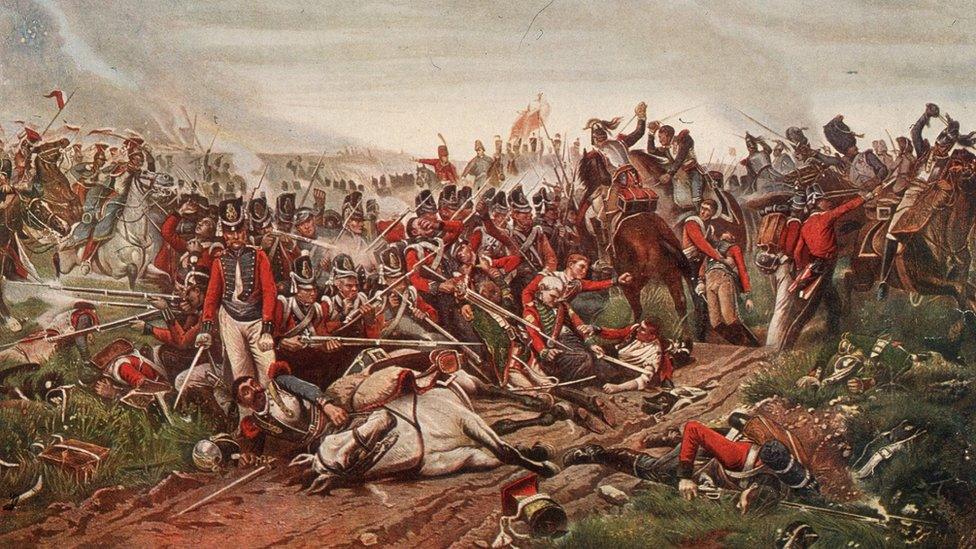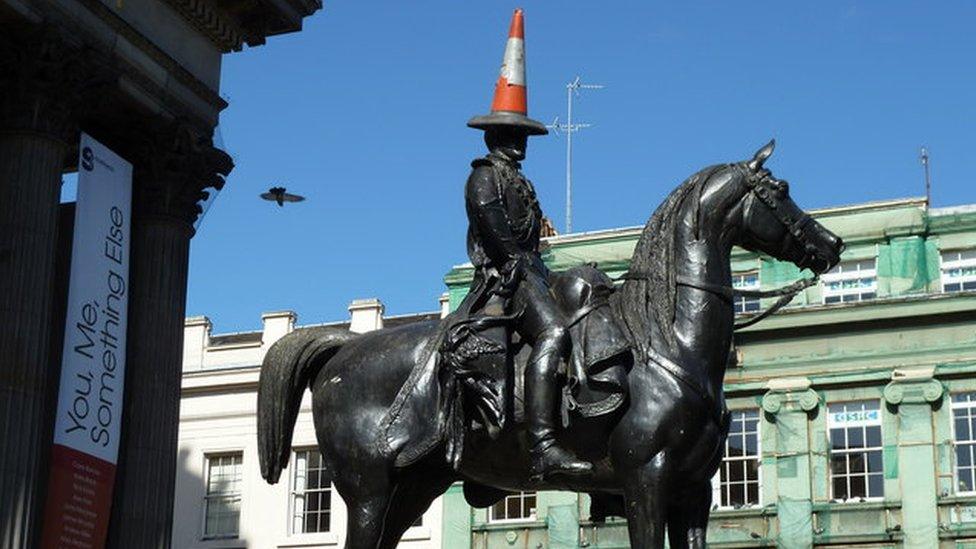Glasgow to host table-top Waterloo re-enactment
- Published

The Battle of Waterloo took place in June 1815
The Glasgow statue with the cone on its head has a special place in the hearts of many people, and now its links to the past will be brought to life in the city next year.
The Duke of Wellington, depicted in the statue, led British forces to victory in the battle against Napoleon at Waterloo.
Glasgow University is planning a huge table-top re-enactment of the battle.
They are asking people to volunteer to take part in the event.
20,000 figures
Organisers are looking for war gamers, schoolchildren, artists, military personnel and veterans to get involved.
The event, in June 2019, will involve more than 20,000 figures, with every battalion, regiment and battery involved in the real 1815 battle represented at the Kelvin Gallery in the University of Glasgow.
The aim is to raise funds for archaeology and veterans' support, as well as to raise awareness of the battle itself.
The university is working with charity Waterloo Uncovered, which has been excavating the Waterloo battlefield since 2015 with a team of professional archaeologists working alongside veterans and serving personnel, many of whom suffer from a range of physical and mental injuries as a result of the their service.
The figures for the recreation will come from the over 80 war game collectors who will be needed to replay the Battle of Waterloo.
It is also hoped sponsors will loan collections while schools and members of the public can volunteer to take part in a massive painting club in the months leading up to the war game.

The statue of the Duke Wellington in Glasgow has become iconic
University of Glasgow archaeologist Prof Tony Pollard has led the Waterloo Uncovered project, and said: "History tells us who won a battle or a war.
"Projects like this help to bring history out of the pages of books and to a wider audience.
"The Battle of Waterloo is one of those iconic battles involving the famous historical figures of Napoleon Bonaparte and the Duke of Wellington. Many Scottish regiments fought under Wellington's command at Waterloo.
"Indeed Wellington has become an iconic and much loved part of Glasgow's cityscape after a traffic cone was placed on his statue's head a few years ago in the centre of the city.
"So it seems fitting to do this event in Glasgow."
He added: "No matter your level of expertise, we need as many people to help with our painting club and you can volunteer via our website, external."
As part of an education and community project, military figures and veterans will work with those actually playing in the recreation.
Mark Evans of Waterloo Uncovered said: "Many of our veterans have experienced battle at first hand; getting them involved in both the dig and in the development of the war gaming record attempt lends a whole new dimension to the event.
"We're hoping that what we discover from the archaeology of the battlefield, and the knowledge and experience of the veterans will feed into the way the war game is fought."
Prof Sir Anton Muscatelli, principal of the University of Glasgow, added: "This is an ambitious undertaking but it is wonderful way to engage and educate on such a pivotal and key historical event."